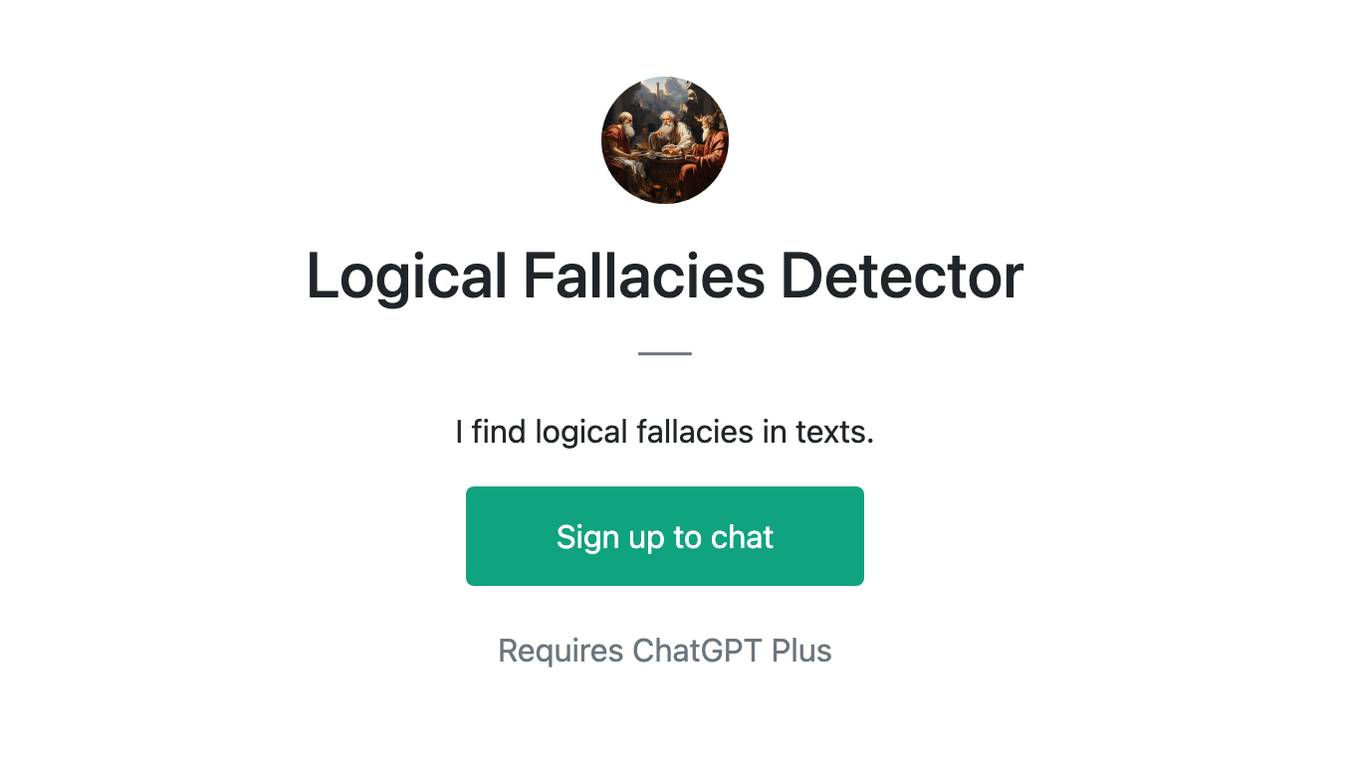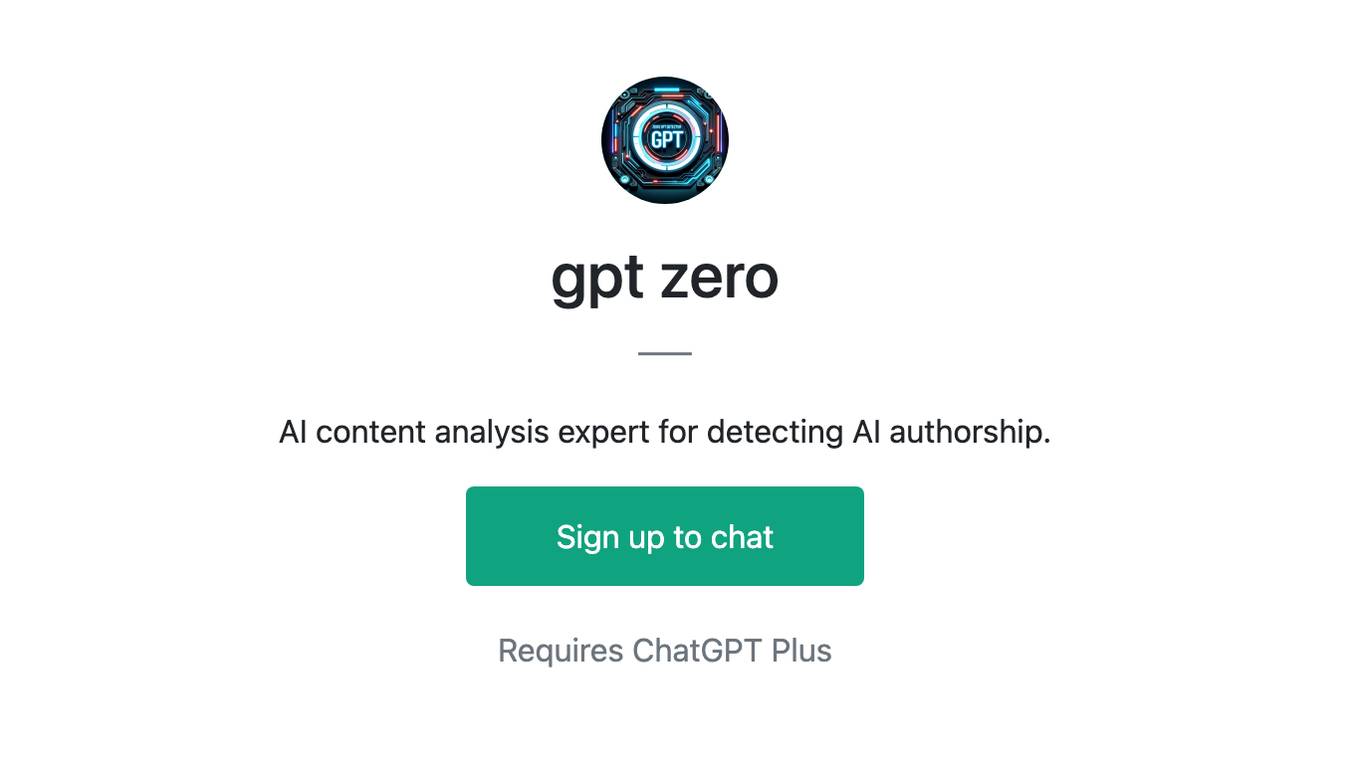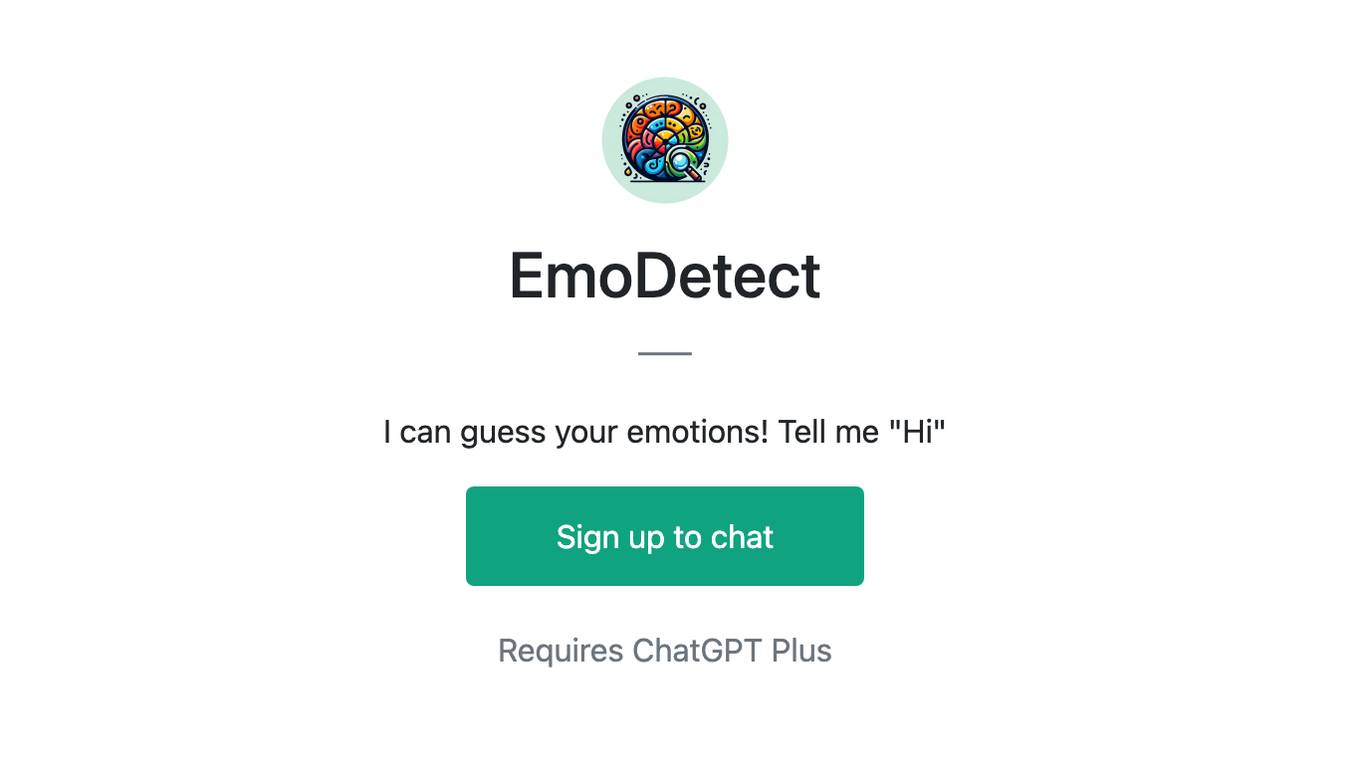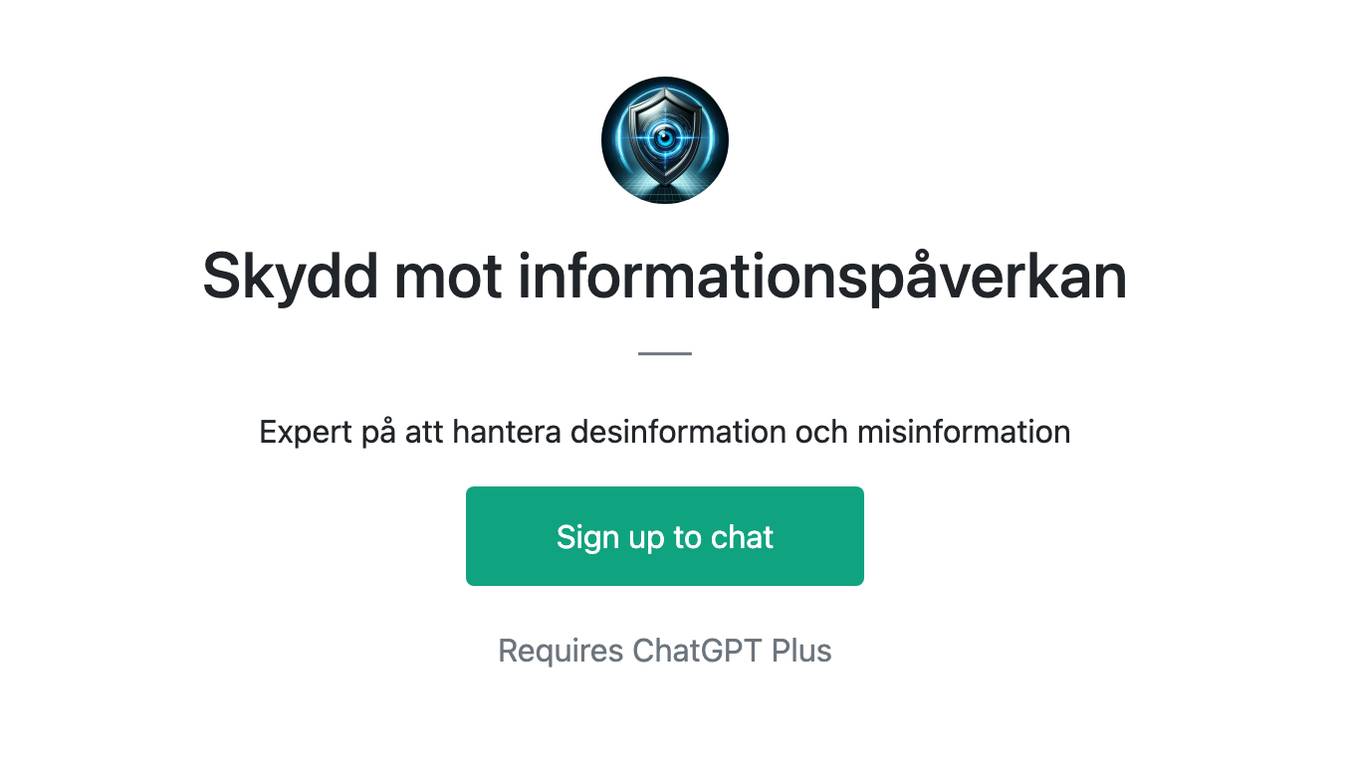Best AI tools for< Detect Buildings >
20 - AI tool Sites

Japan Computer Vision (JCV)
Japan Computer Vision (JCV) is a leading technology company specializing in advanced computer vision solutions (image recognition). As a 100% subsidiary of SoftBank Corp., JCV focuses on security and innovation to provide cutting-edge technologies that transform industries and improve lives worldwide. Through solutions for smart buildings and smart retail, JCV enhances office environments, streamlines operations, improves hospitality in stores and commercial facilities, and creates new work and lifestyle experiences.
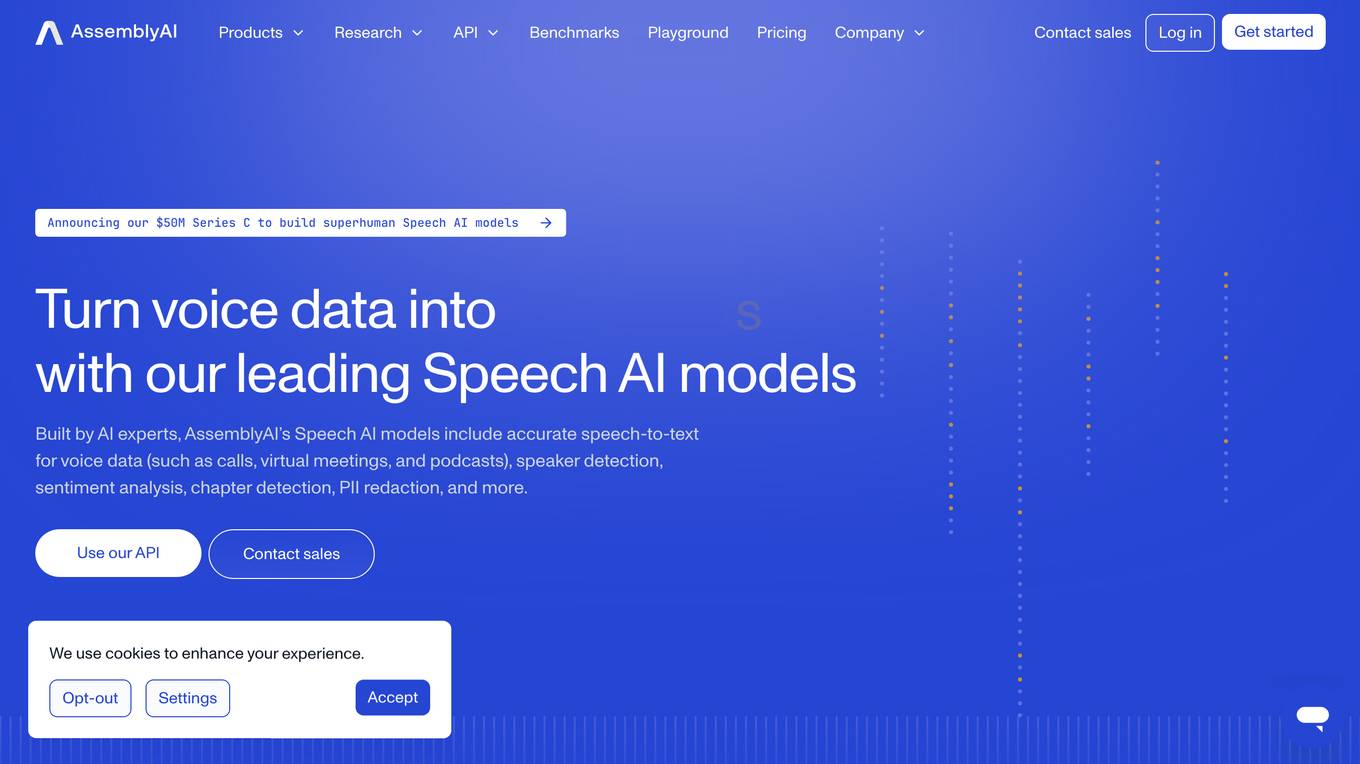
AssemblyAI
AssemblyAI is an AI tool that provides AI models for transcribing and understanding speech. Their products include Speech-to-Text Streaming, Speech Understanding, and more. AssemblyAI's research focuses on building new AI systems that can understand human speech with superhuman abilities. They offer industry-leading accuracy, low Word Error Rate (WER), and advanced capabilities like speaker identification and multilingual speech recognition. The platform is designed to be easy to use, scalable, and cost-effective for developers. AssemblyAI is trusted by top Voice AI companies for launching innovative products quickly and efficiently.

MeDA School
MeDA School is an educational platform dedicated to promoting and nurturing talents in the field of Medical Artificial Intelligence (AI). The platform aims to establish a solid foundation for intelligent and precision medical talent pools in Taiwan and globally. MeDA School facilitates interaction and communication among members of the intelligent medical ecosystem, fostering deep understanding and trust in the operation and tasks of medical AI. The platform offers a blend of virtual and physical courses, inviting domain experts to share cutting-edge knowledge and integrating interdisciplinary knowledge to be practically applied in various fields.
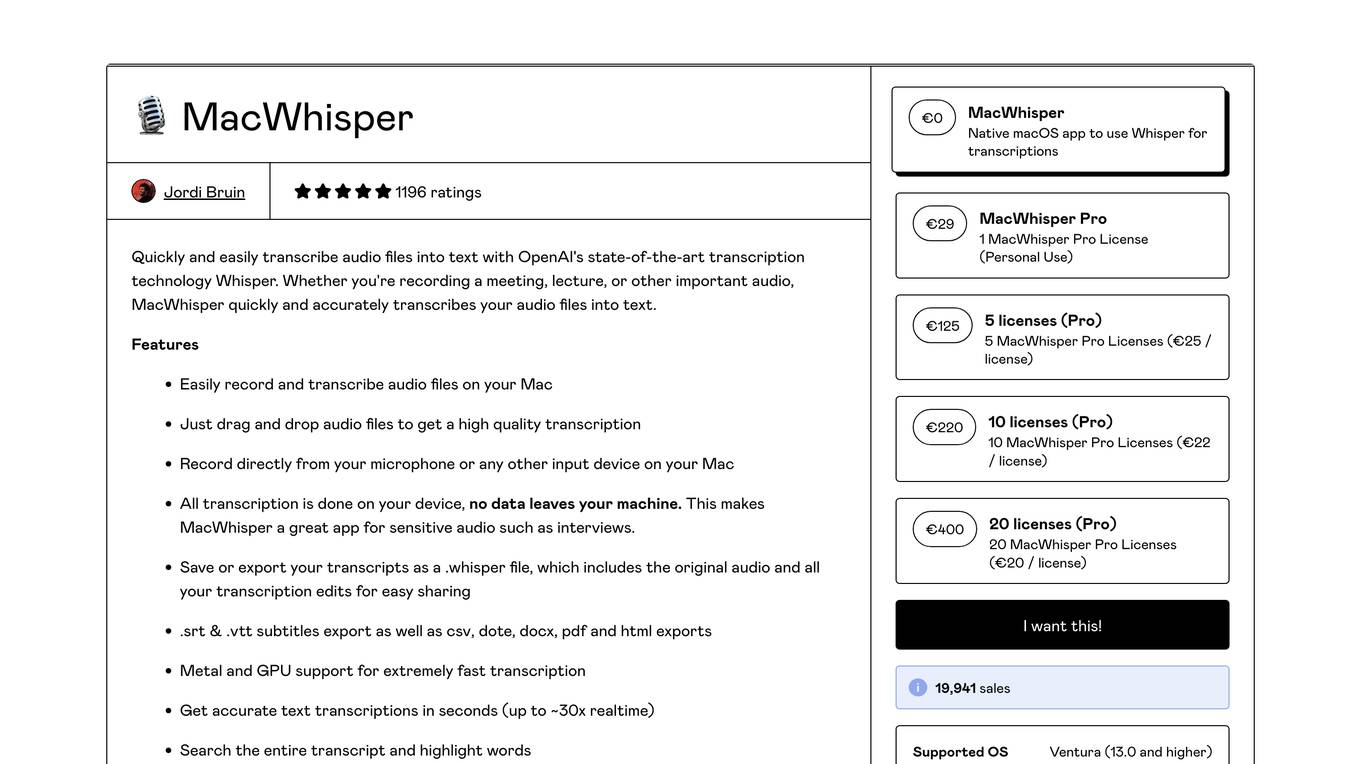
MacWhisper
MacWhisper is a native macOS application that utilizes OpenAI's Whisper technology for transcribing audio files into text. It offers a user-friendly interface for recording, transcribing, and editing audio, making it suitable for various use cases such as transcribing meetings, lectures, interviews, and podcasts. The application is designed to protect user privacy by performing all transcriptions locally on the device, ensuring that no data leaves the user's machine.
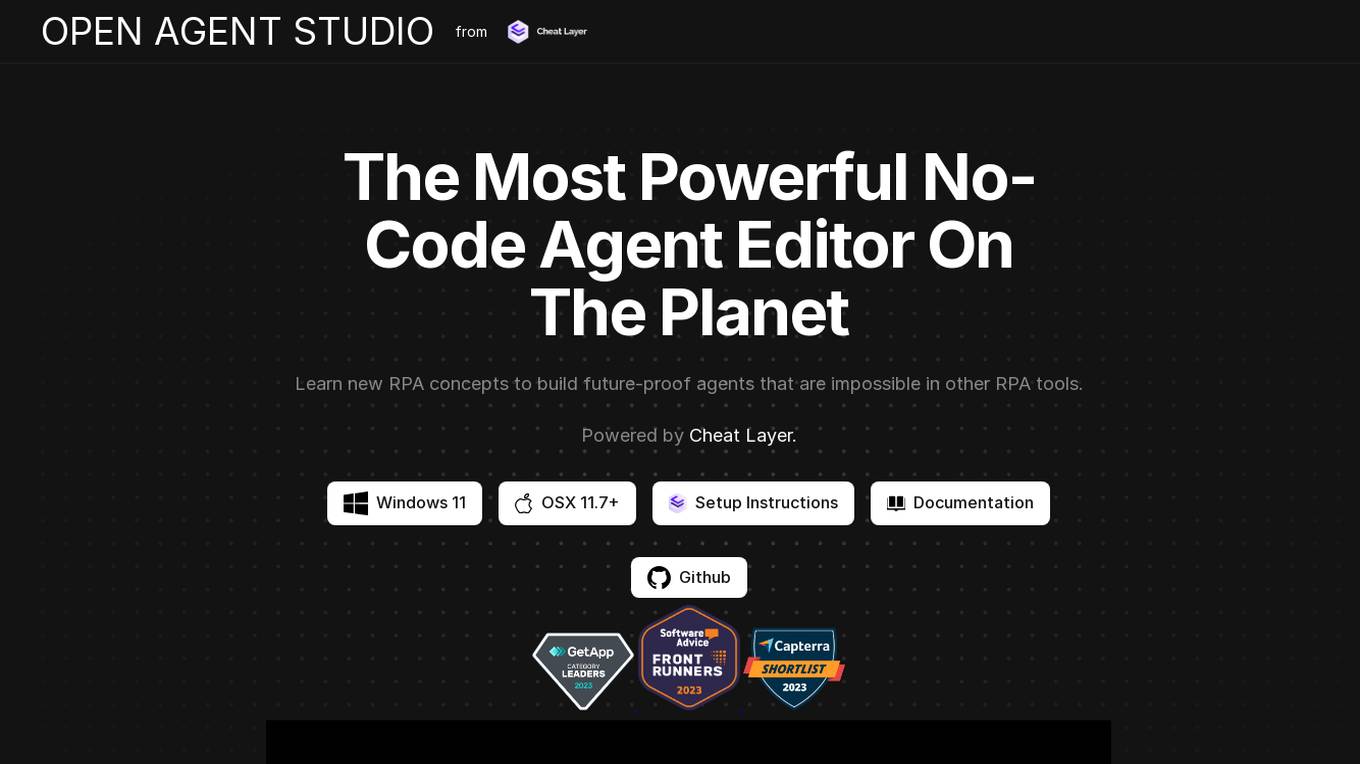
Open Agent Studio
Open Agent Studio is a powerful no-code agent editor that introduces new automation concepts like Semantic Targets and Semantic Triggers in simple language, enabling the creation of future-proof agents that are robust to design changes. It is designed to target markets untouched by AI, offering subscribers a free 4-week course to launch custom agents with enterprise-grade white label. The tool includes an Agent Recorder for easy building of agents by recording keyboard and mouse actions, scraping data, and detecting the start node. Open Agent Studio is powered by Cheat Layer, a platform that leverages GPT-3 for automation and aims to democratize access to AI for rebuilding businesses online.

BlazeGard
BlazeGard is an AI-powered fire safety application that utilizes cutting-edge object detection technology to analyze video feeds in real-time, identifying potential fire hazards and smoke before flames erupt. It offers comprehensive protection for homes, businesses, and industrial facilities, going beyond traditional smoke detectors. BlazeGard provides early detection, real-time alerts, and peace of mind through its proactive approach to fire safety.
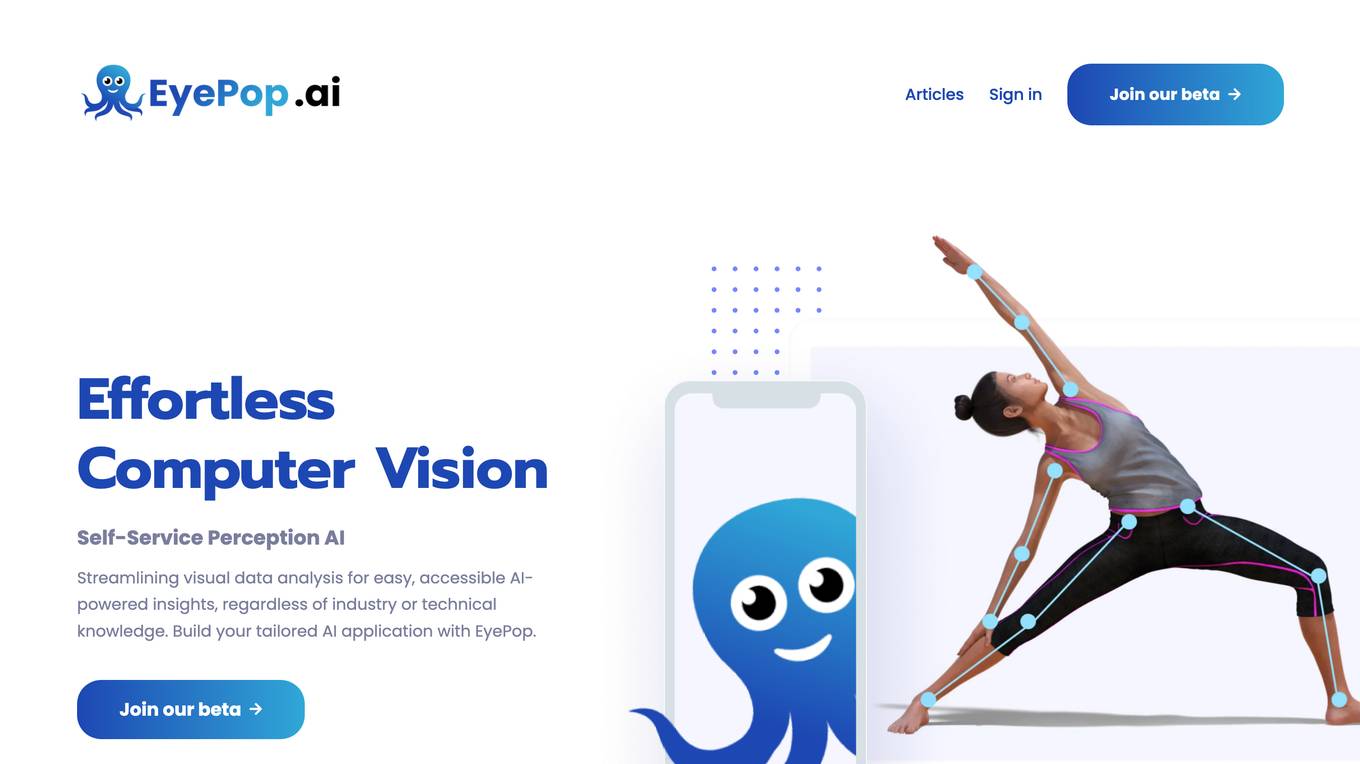
EyePop.ai
EyePop.ai is a hassle-free AI vision partner designed for innovators to easily create and own custom AI-powered vision models tailored to their visual data needs. The platform simplifies building AI-powered vision models through a fast, intuitive, and fully guided process without the need for coding or technical expertise. Users can define their target, upload data, train their model, deploy and detect, and iterate and improve to ensure effective AI solutions. EyePop.ai offers pre-trained model library, self-service training platform, and future-ready solutions to help users innovate faster, offer unique solutions, and make real-time decisions effortlessly.
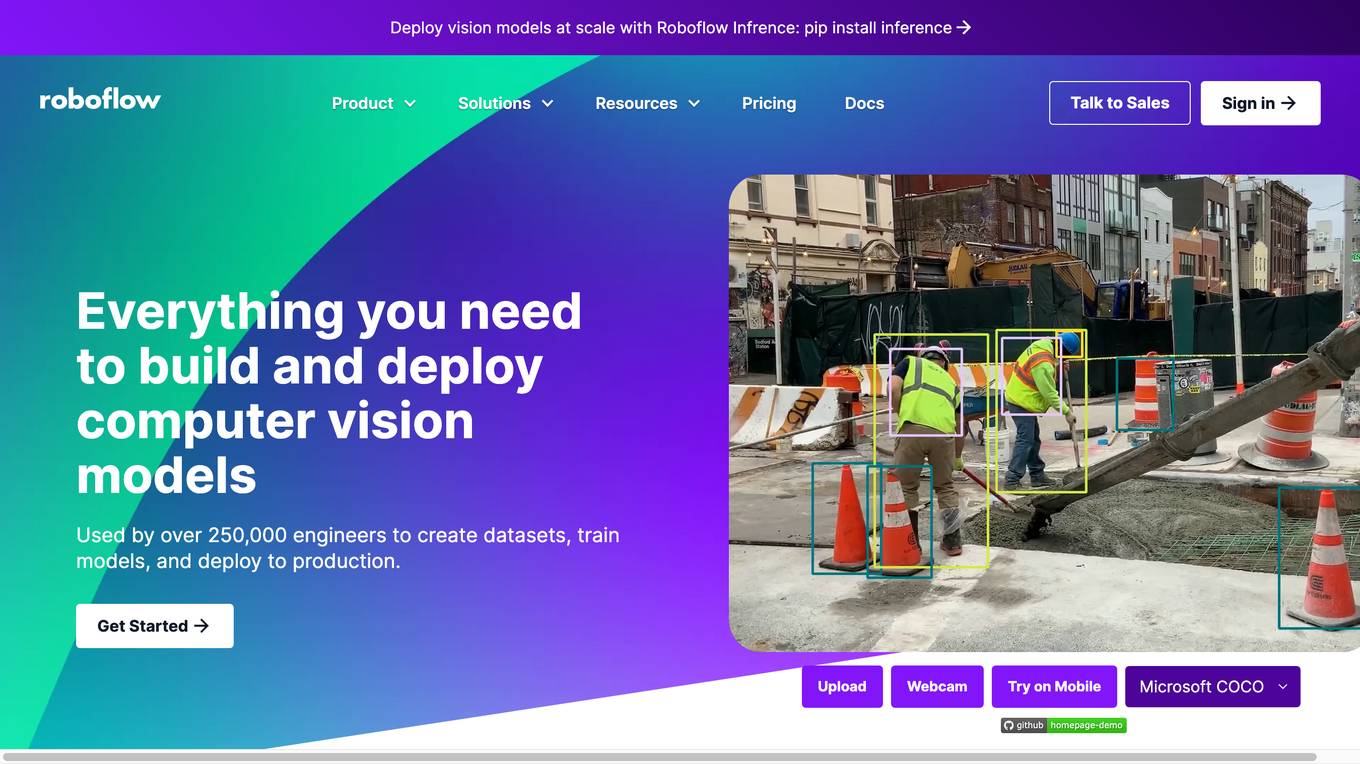
Roboflow
Roboflow is a platform that provides tools for building and deploying computer vision models. It offers a range of features, including data annotation, model training, and deployment. Roboflow is used by over 250,000 engineers to create datasets, train models, and deploy to production.
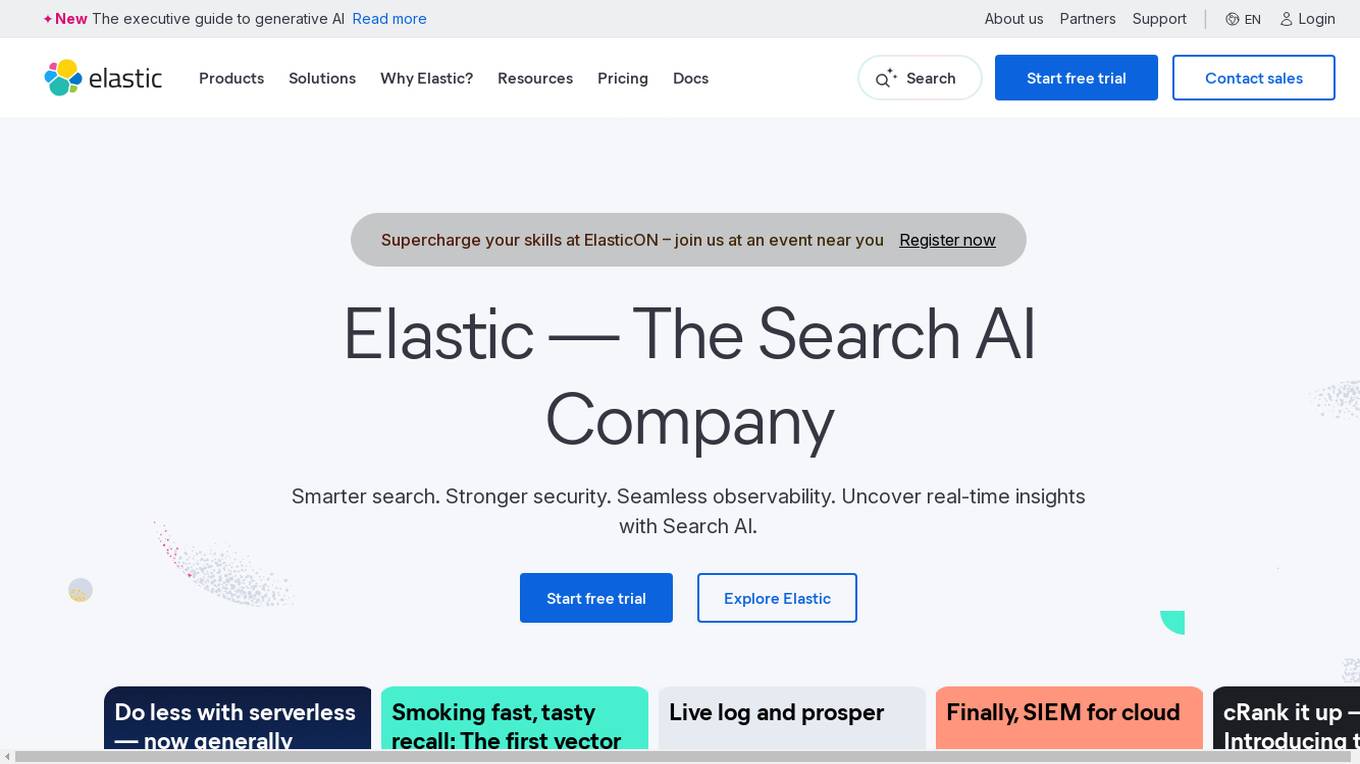
Elastic
Elastic is a Search AI Company that offers a platform for building tailored experiences, search and analytics, data ingestion, visualization, and generative AI solutions. The company provides services like Elastic Cloud for real-time insights, Elastic AI Assistant for retrieval and generation, and Search AI Lake for faster integration with LLMs. Elastic aims to help businesses scale with low-latency search AI and accelerate problem resolution with observability powered by advanced ML and analytics.
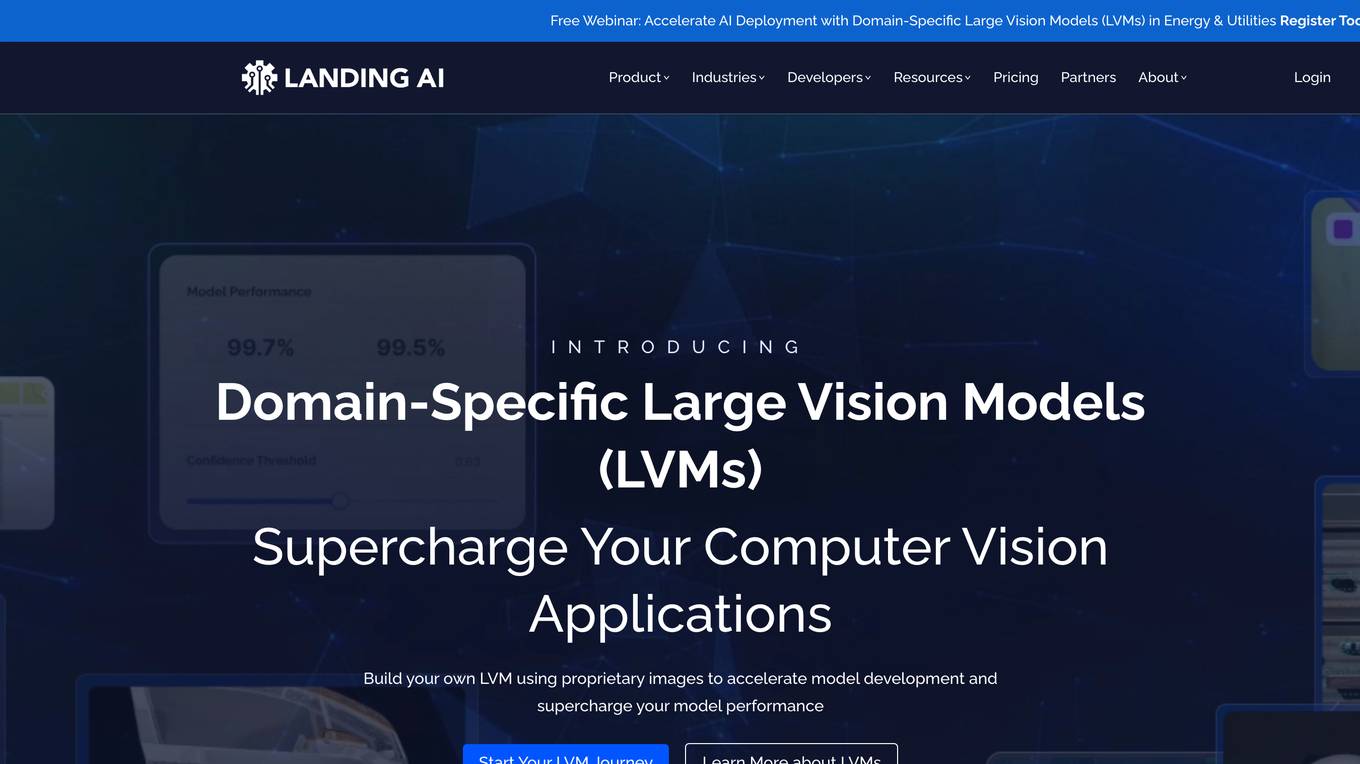
Landing AI
Landing AI is a computer vision platform and AI software company that provides a cloud-based platform for building and deploying computer vision applications. The platform includes a library of pre-trained models, a set of tools for data labeling and model training, and a deployment service that allows users to deploy their models to the cloud or edge devices. Landing AI's platform is used by a variety of industries, including automotive, electronics, food and beverage, medical devices, life sciences, agriculture, manufacturing, infrastructure, and pharma.
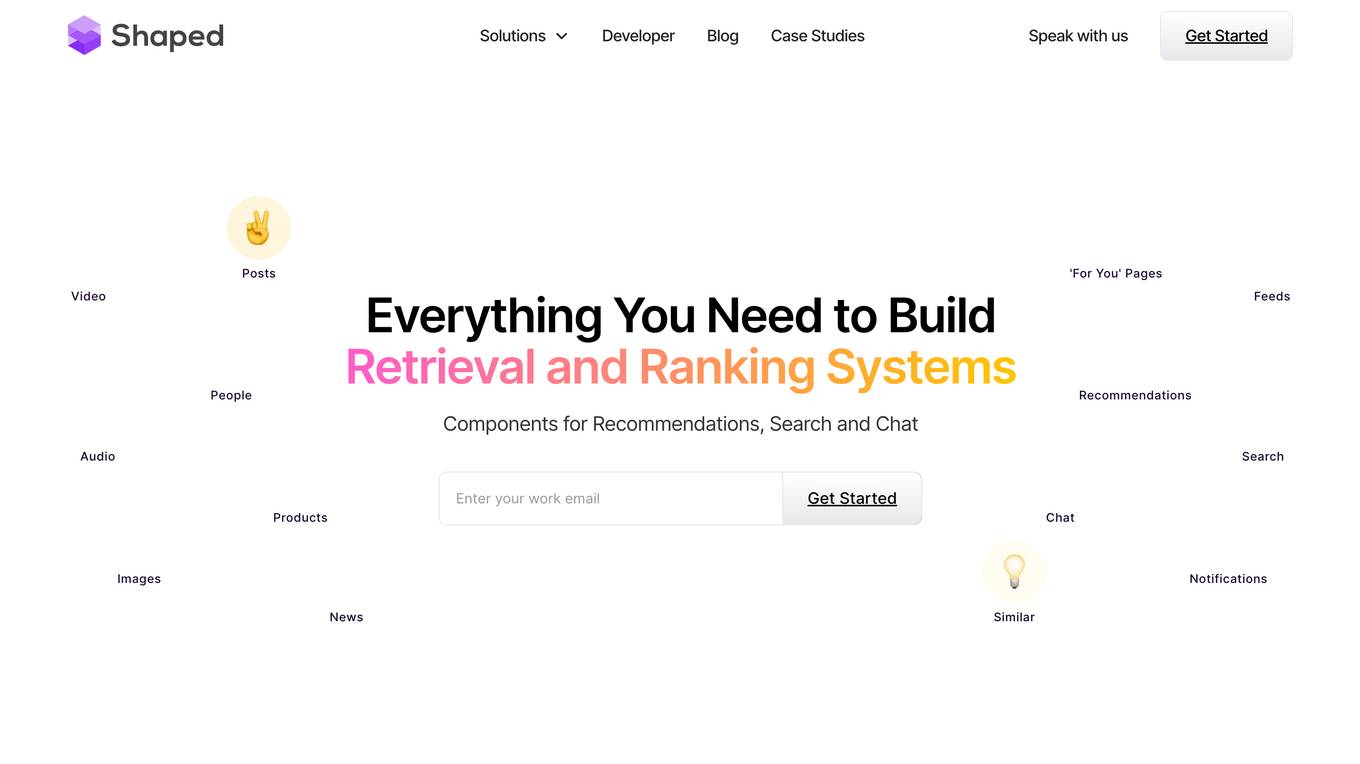
Shaped
Shaped is a cloud-based platform that provides APIs and tools for building and deploying ranking systems. It offers a variety of features to help developers quickly and easily create and manage ranking models, including a multi-connector SQL interface, a real-time feature store, and a library of pre-built models. Shaped is designed to be scalable, cost-efficient, and easy to use, making it a great option for businesses of all sizes.
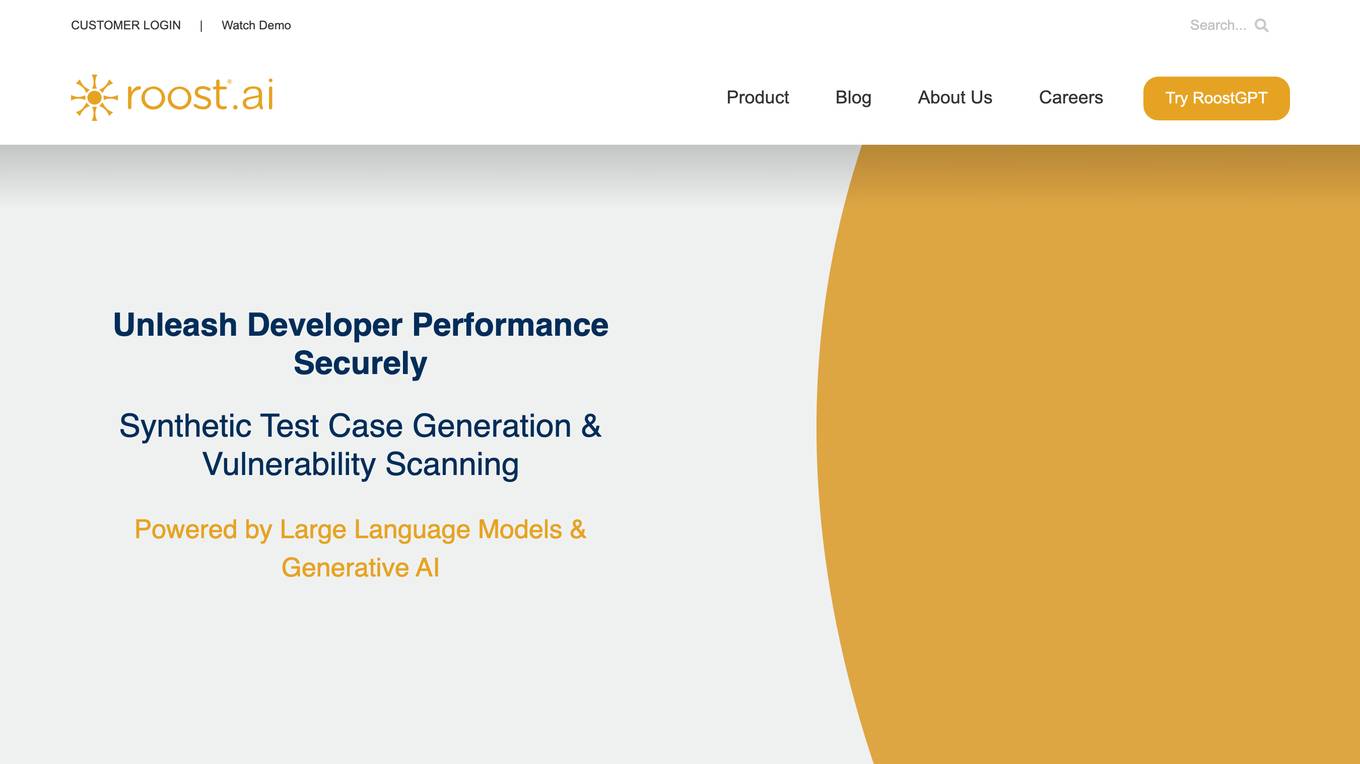
RoostGPT
RoostGPT is an AI-driven testing copilot that offers automated test case generation using Large Language Models (LLMs). It helps in building reliable software by providing 100% test coverage every single time. RoostGPT leverages generative AI to automate test case generation, freeing up developer time and enhancing test accuracy and coverage. It also detects static vulnerabilities in artifacts like source code and logs to ensure data security. The platform is trusted by global financial institutions and industry leaders for its ability to fill gaps in test coverage and simplify testing and deployment processes.
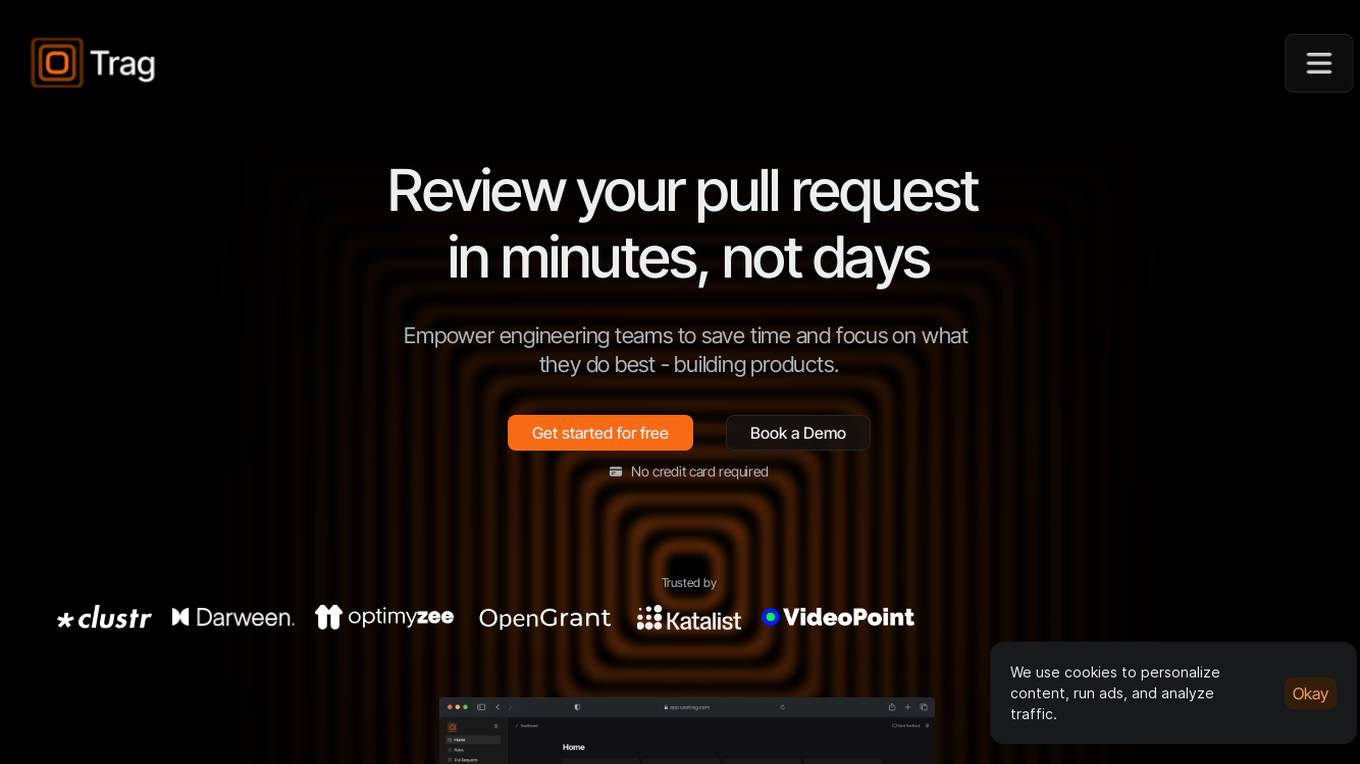
Trag
Trag is an AI-powered tool designed to review pull requests in minutes, empowering engineering teams to save time and focus on building products. With Trag, users can create custom patterns for code review, ensuring best practices are followed and bugs are caught early. The tool offers features like autofix with AI, monitoring progress, connecting multiple repositories, pull request review, analytics, and team workspaces. Trag stands out from traditional linters by providing complex code understanding, semantic code analysis, predictive bug detection, and refactoring suggestions. It aims to streamline code reviews and help teams ship faster with AI-powered reviews.
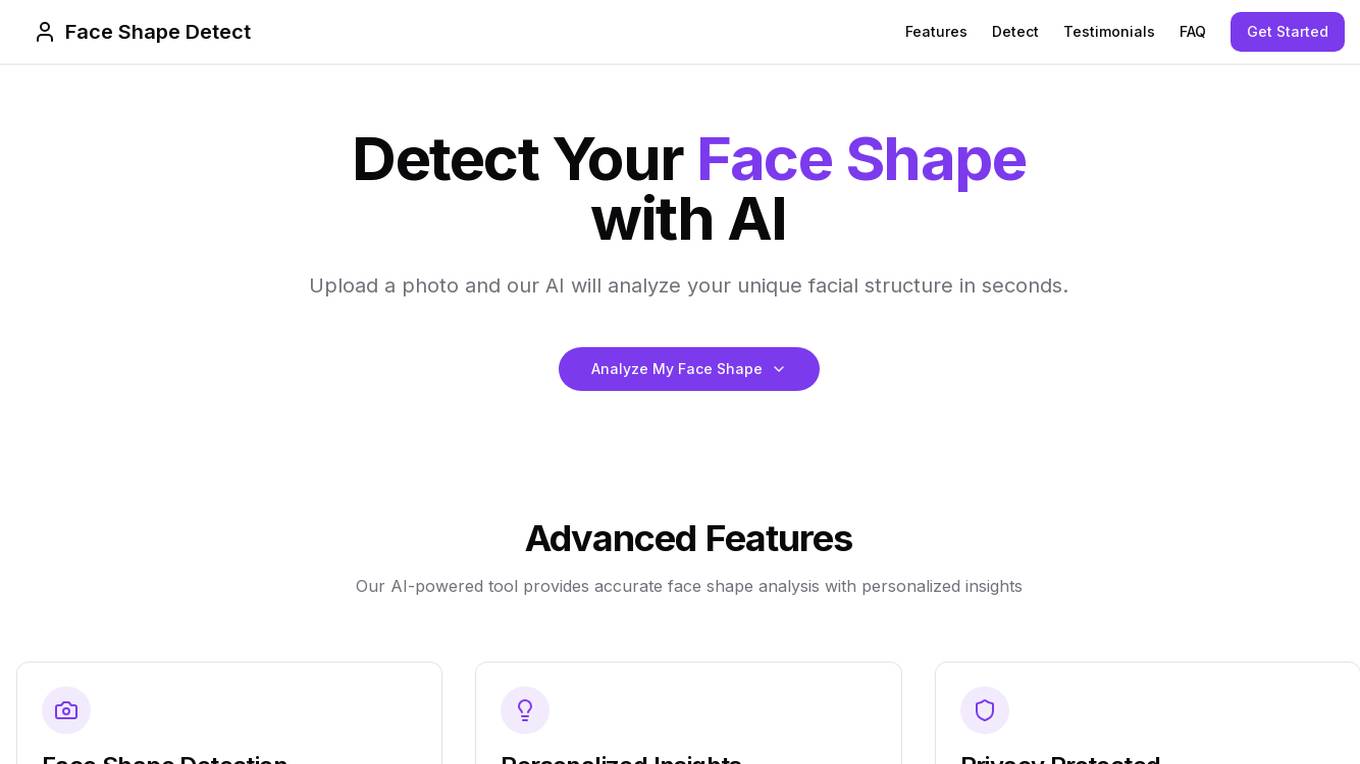
Face Shape Detect
Face Shape Detect is an AI-powered tool that allows users to analyze their unique facial structure and determine their face shape for personalized recommendations. Users can upload a photo to receive accurate face shape analysis and styling tips. The tool prioritizes privacy by securely processing images without storing them. It helps users understand their face shape for better fashion and beauty choices.
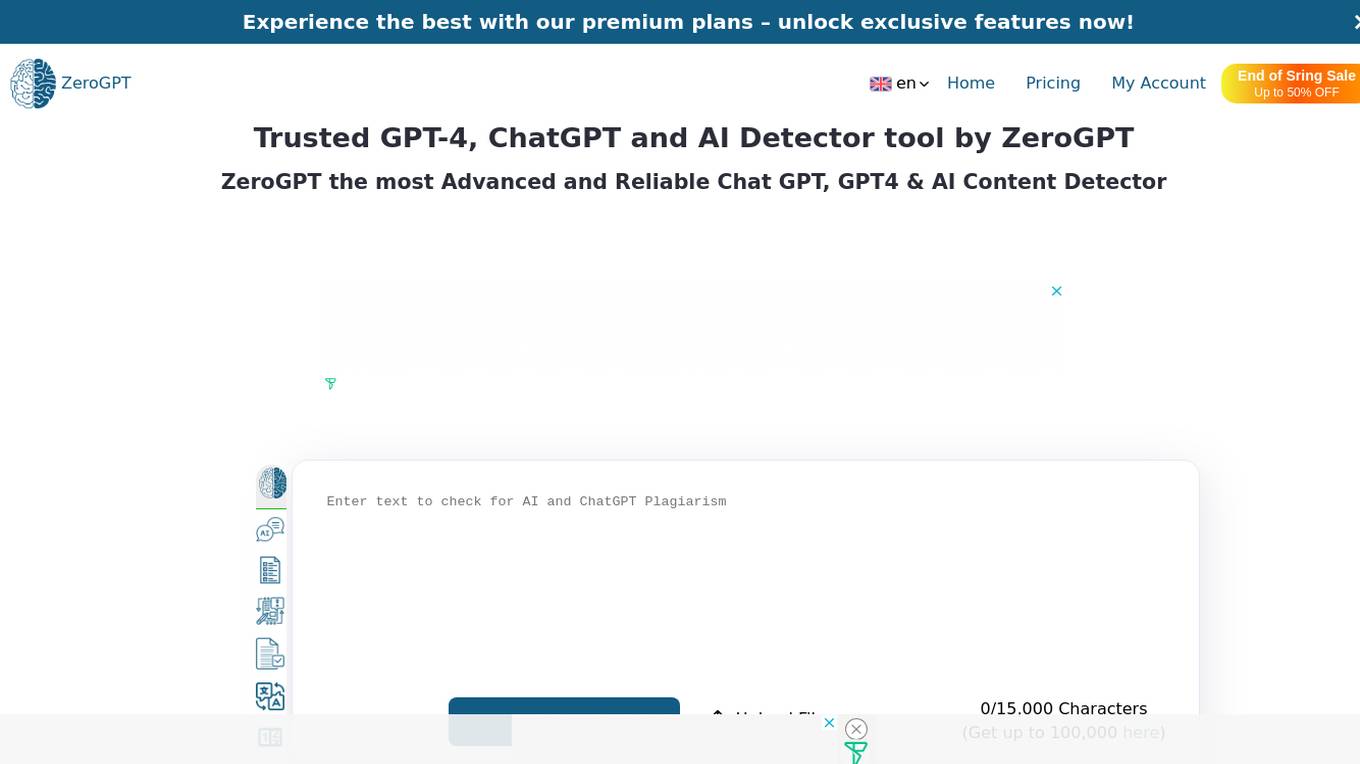
ZeroGPT
ZeroGPT is a trusted AI detector tool that specializes in detecting AI-generated content like ChatGPT, GPT4, and Gemini. It offers advanced features such as AI summarization, paraphrasing, grammar and spell checking, translation, word counting, and citation generation. The tool is designed to provide highly accurate results and supports multiple languages. ZeroGPT stands out for its highlighted sentences feature, batch file upload capability, high accuracy model, and automatically generated reports. It utilizes DeepAnalyse™ Technology, a multi-stage methodology that optimizes accuracy while minimizing false positives and negatives. Users can unlock premium features and API access to enhance their writing skills and integrate the tool on a large scale.

AI or Not
AI or Not is an AI-powered tool that helps businesses and individuals detect AI-generated images and audio. It uses advanced machine learning algorithms to analyze content and determine the likelihood of AI manipulation. With AI or Not, users can protect themselves from fraud, misinformation, and other malicious activities involving AI-generated content.
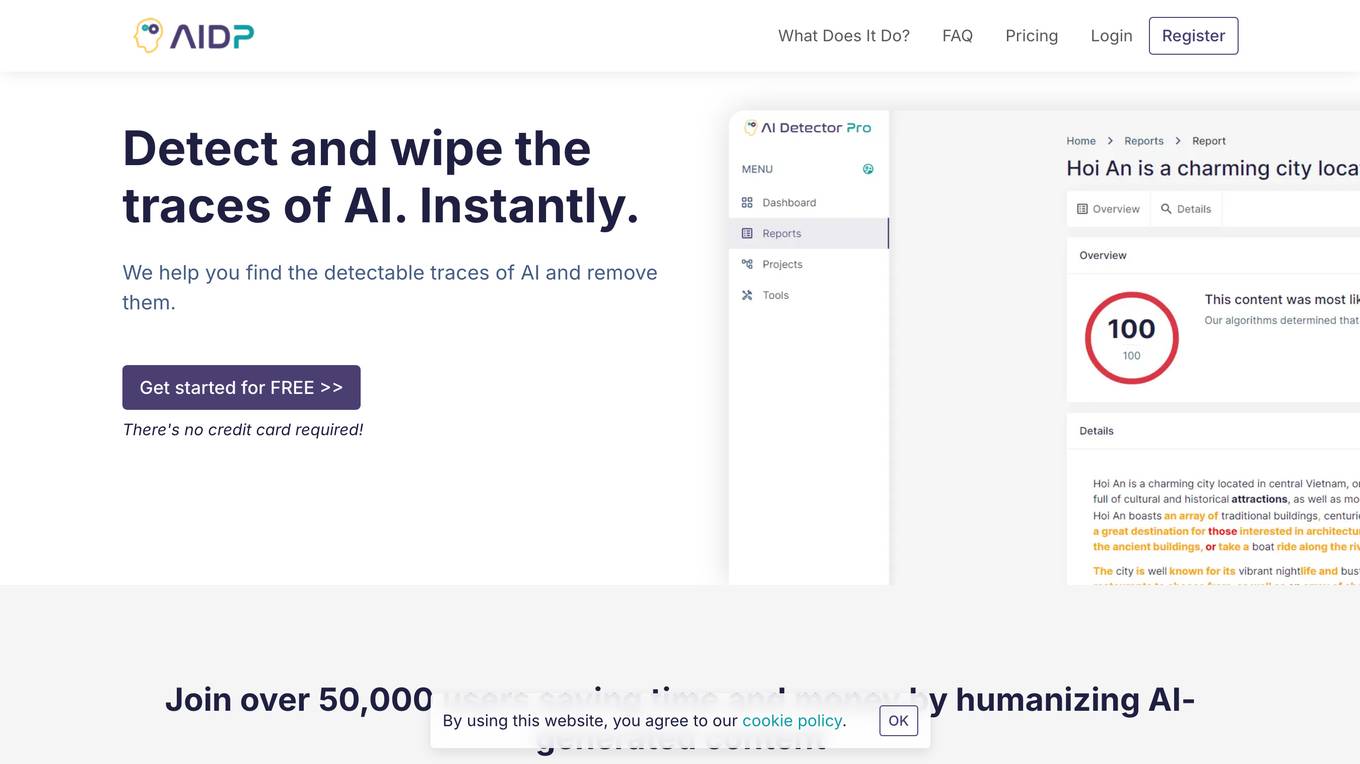
AIDP
AIDP is a comprehensive platform that helps you find and remove the fingerprints of AI in documents. It includes automatic and manual tools for revising content that was written by ChatGPT and other AI models. With AIDP, you can: * Detect and wipe the traces of AI instantly. * See what triggers AI detection. * Get suggestions for wording changes and rewrites. * Make AI sound human. * Get a tone analysis to determine how your document sounds. * Find and wipe AI from any document.
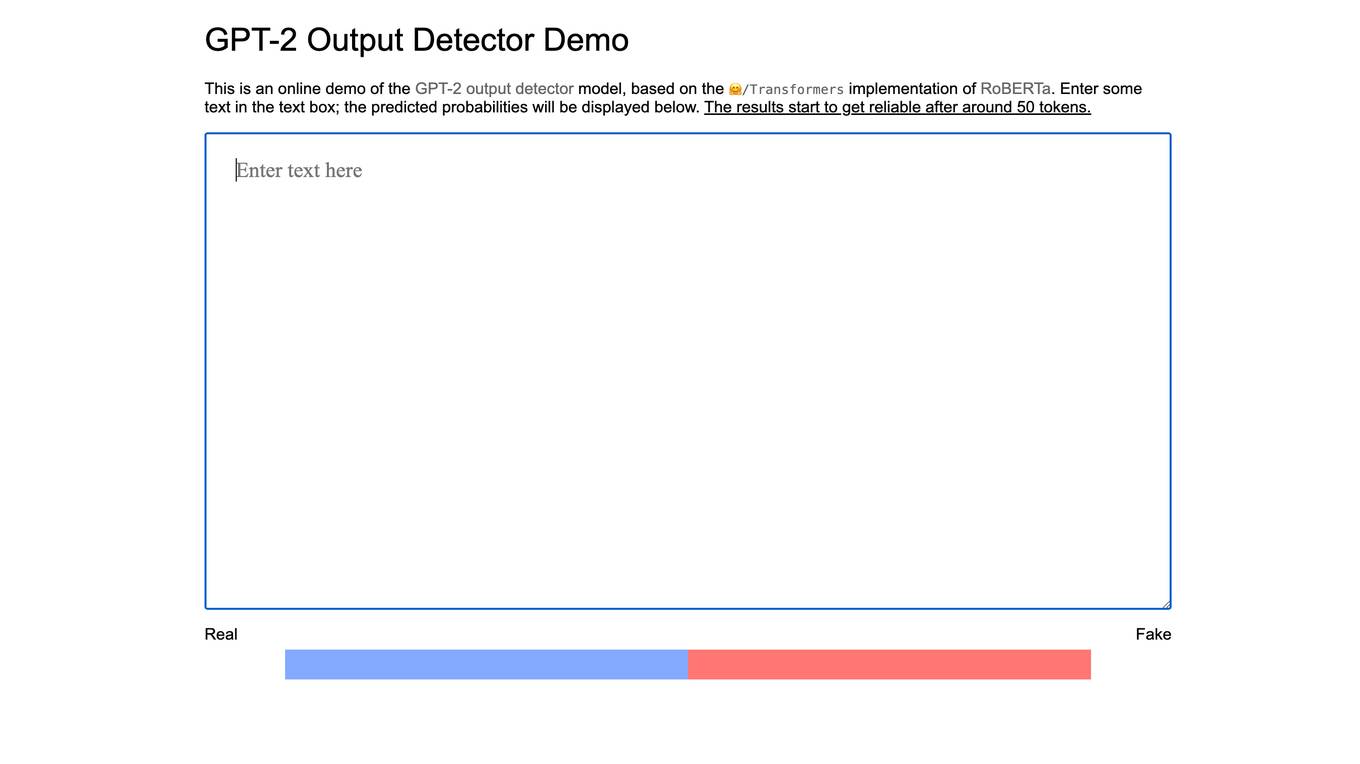
GPT-2 Output Detector
The GPT-2 Output Detector is an online tool that helps users identify whether a given text was generated by the GPT-2 language model. The tool is based on the RoBERTa implementation of Transformers, a popular natural language processing library. Users can enter text into the text box, and the tool will predict the probability that the text was generated by GPT-2. The results start to get reliable after around 50 tokens.

GRAIL
GRAIL is a healthcare company innovating to solve medicine’s most important challenges. Our team of leading scientists, engineers and clinicians are on an urgent mission to detect cancer early, when it is more treatable and potentially curable. GRAIL's Galleri® test is a first-of-its-kind multi-cancer early detection (MCED) test that can detect a signal shared by more than 50 cancer types and predict the tissue type or organ associated with the signal to help healthcare providers determine next steps.
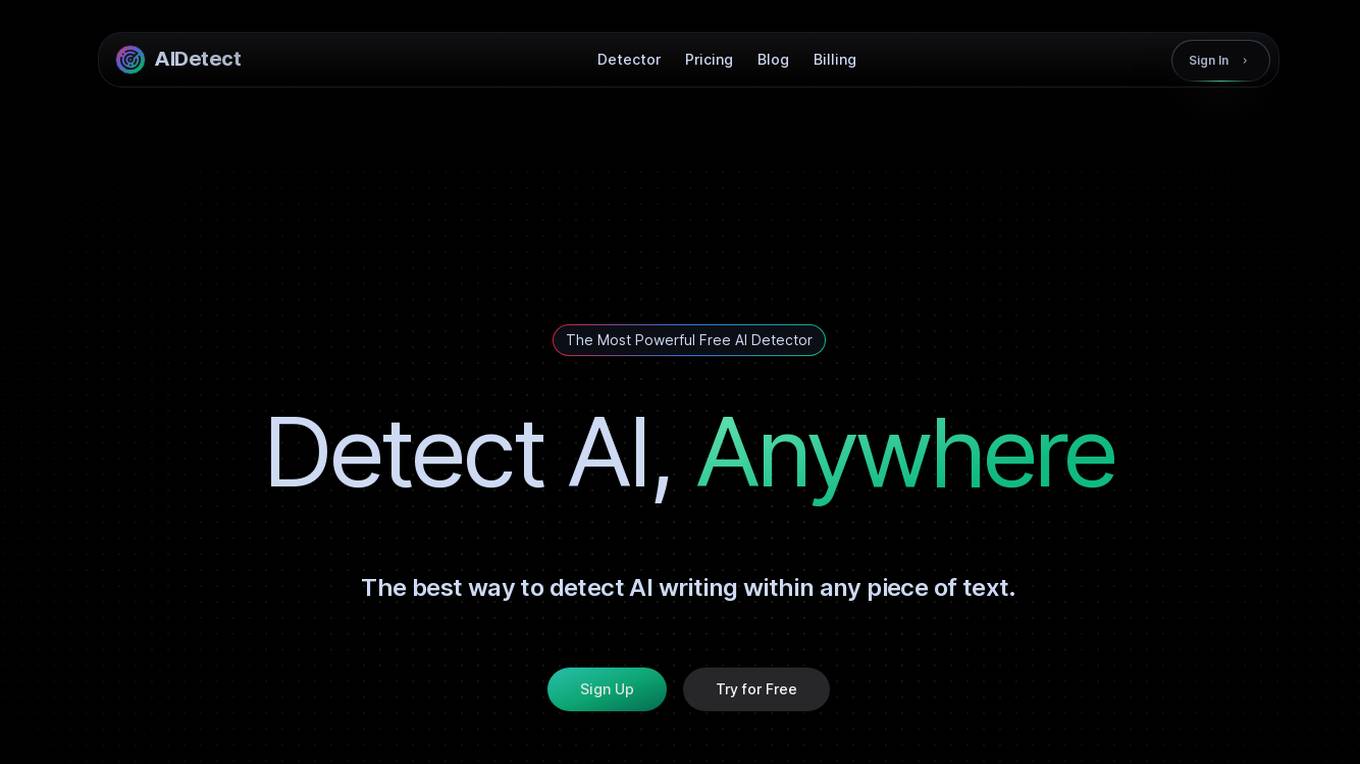
AIDetect
AIDetect is a powerful AI content detector tool that allows users to identify AI-generated writing within any text. It offers cutting-edge features and high accuracy, comparable to Turnitin, to help users verify the authenticity of content. With advanced technology, AIDetect ensures that users can distinguish between human and AI-generated content effortlessly.
1 - Open Source AI Tools
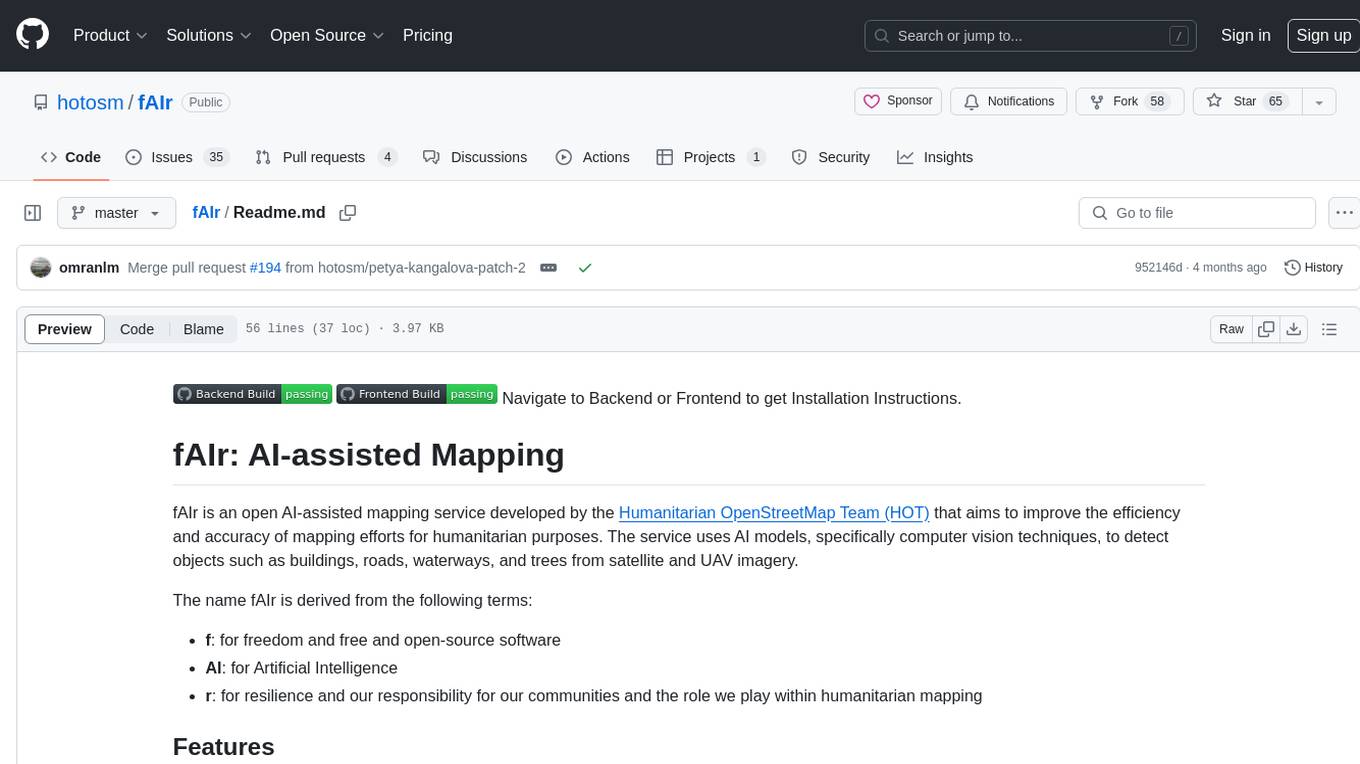
fAIr
fAIr is an open AI-assisted mapping service developed by the Humanitarian OpenStreetMap Team (HOT) to improve mapping efficiency and accuracy for humanitarian purposes. It uses AI models, specifically computer vision techniques, to detect objects like buildings, roads, waterways, and trees from satellite and UAV imagery. The service allows OSM community members to create and train their own AI models for mapping in their region of interest and ensures models are relevant to local communities. Constant feedback loop with local communities helps eliminate model biases and improve model accuracy.
20 - OpenAI Gpts
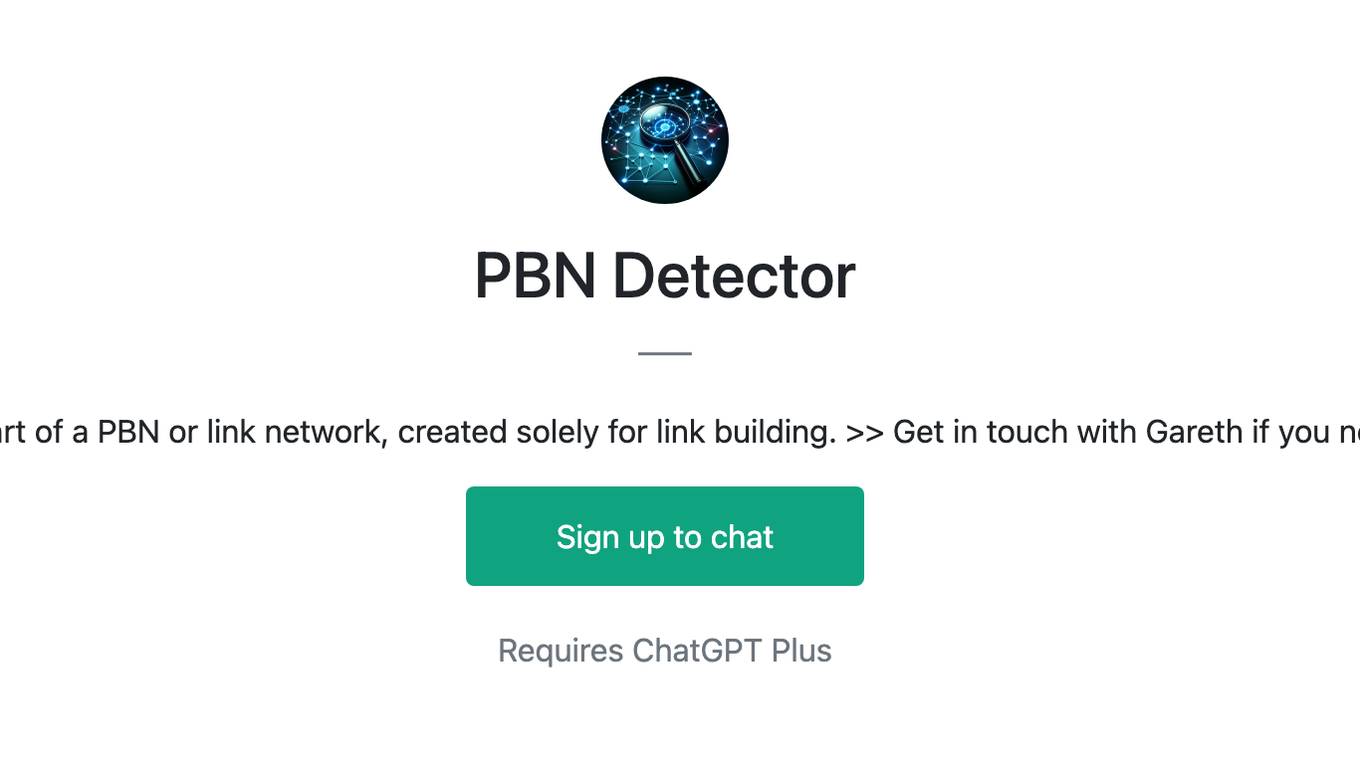
PBN Detector
A tool to help you decide if a website is part of a PBN or link network, created solely for link building. >> Get in touch with Gareth if you need a Freelance SEO for link building <<
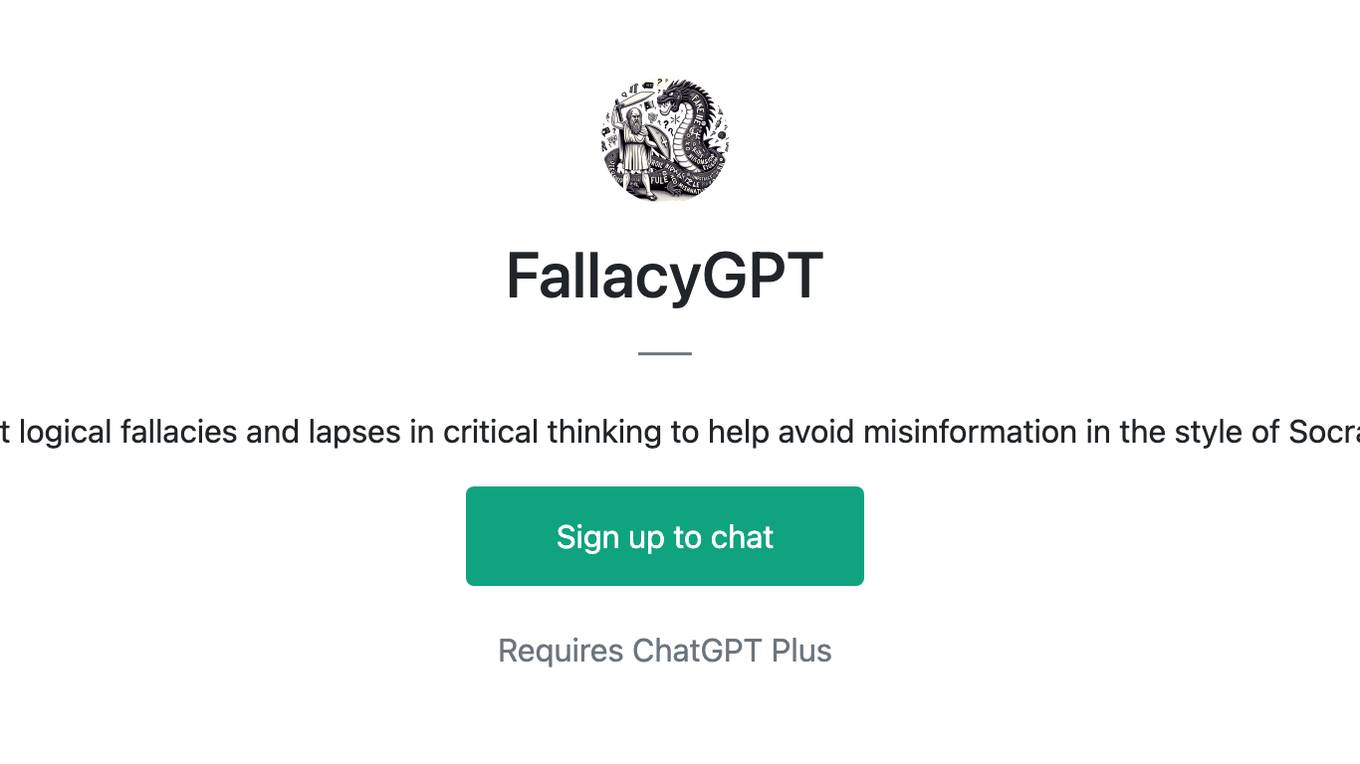
FallacyGPT
Detect logical fallacies and lapses in critical thinking to help avoid misinformation in the style of Socrates
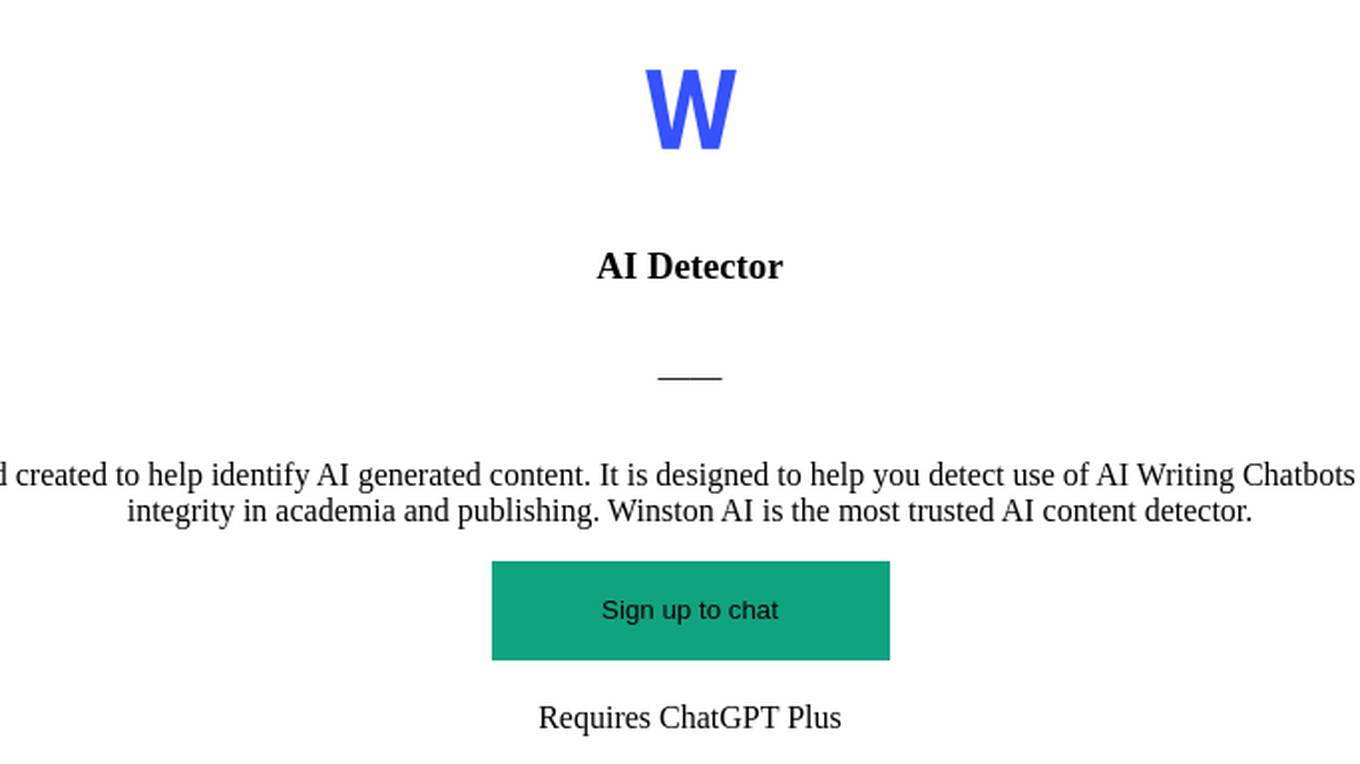
AI Detector
AI Detector GPT is powered by Winston AI and created to help identify AI generated content. It is designed to help you detect use of AI Writing Chatbots such as ChatGPT, Claude and Bard and maintain integrity in academia and publishing. Winston AI is the most trusted AI content detector.
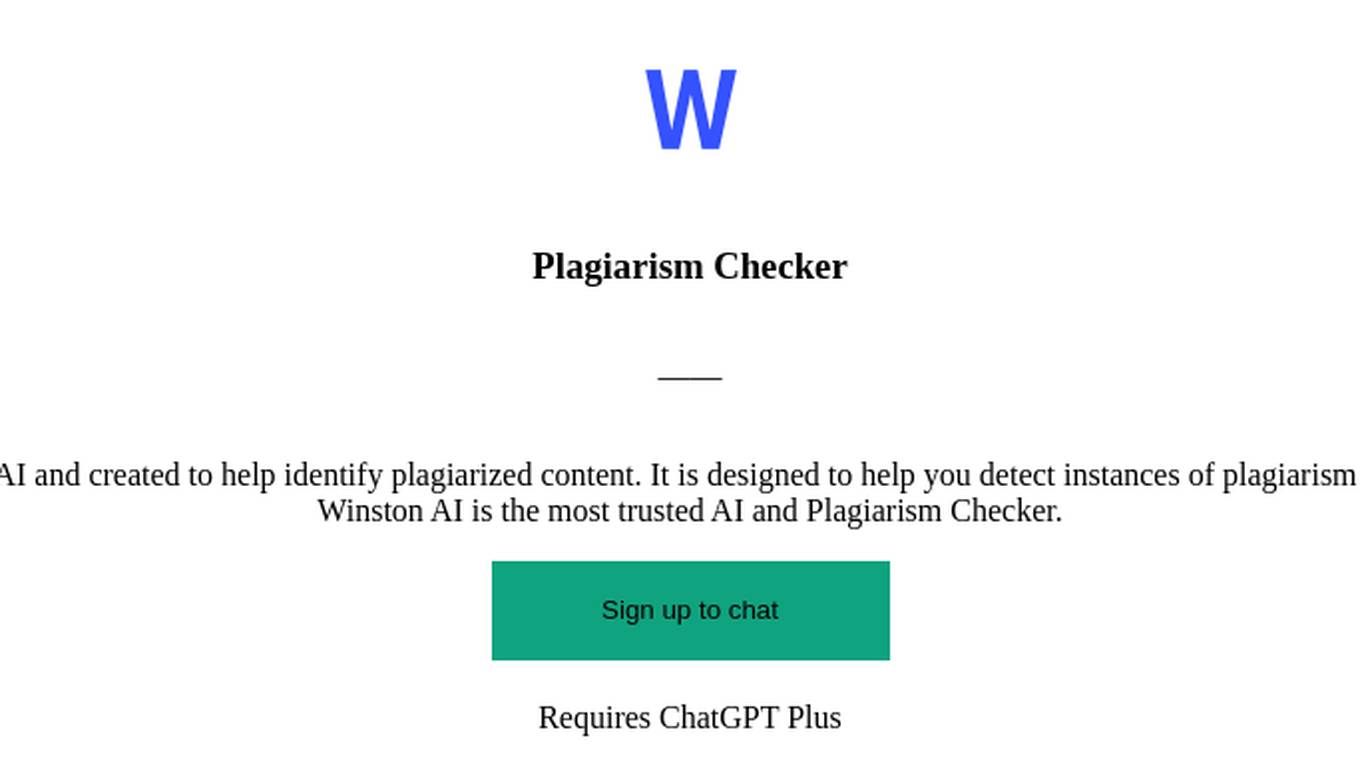
Plagiarism Checker
Plagiarism Checker GPT is powered by Winston AI and created to help identify plagiarized content. It is designed to help you detect instances of plagiarism and maintain integrity in academia and publishing. Winston AI is the most trusted AI and Plagiarism Checker.
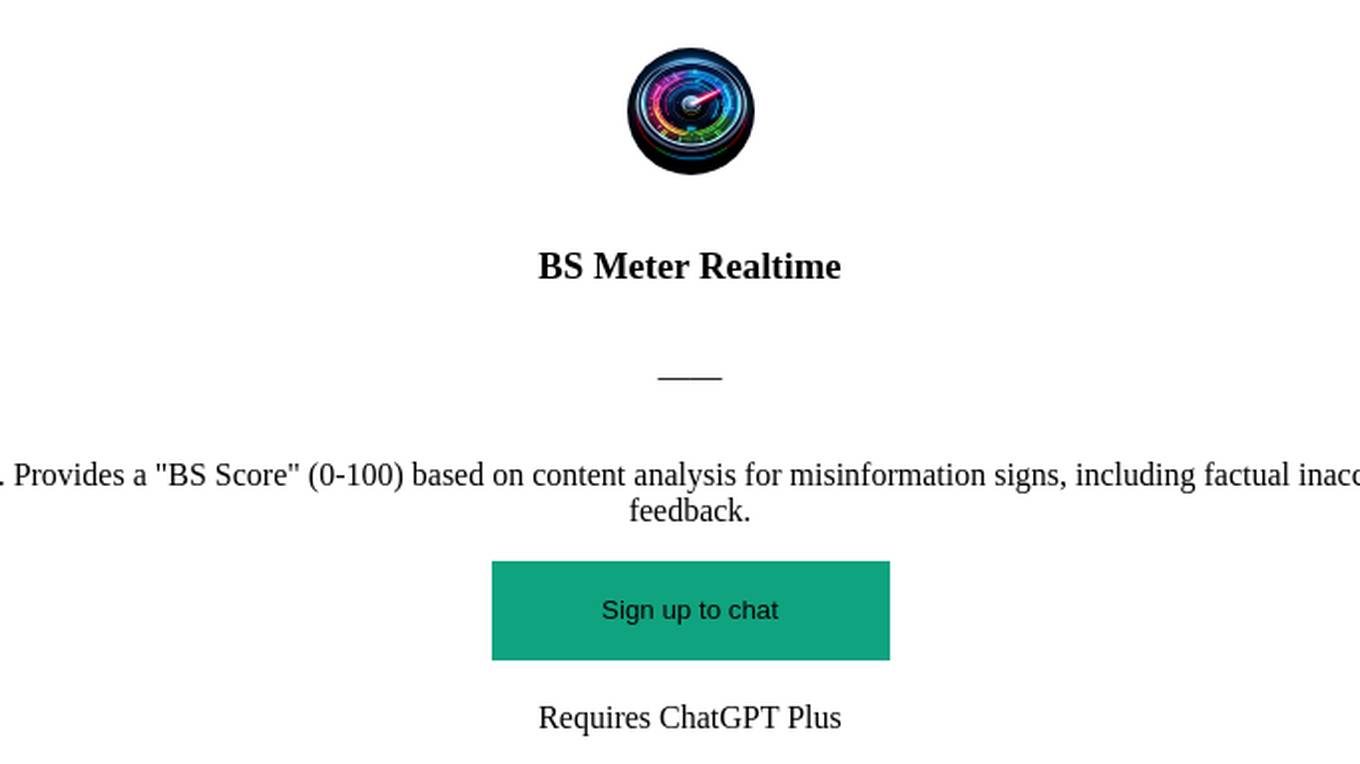
BS Meter Realtime
Detects and measures information credibility. Provides a "BS Score" (0-100) based on content analysis for misinformation signs, including factual inaccuracies and sensationalist language. Real-time feedback.
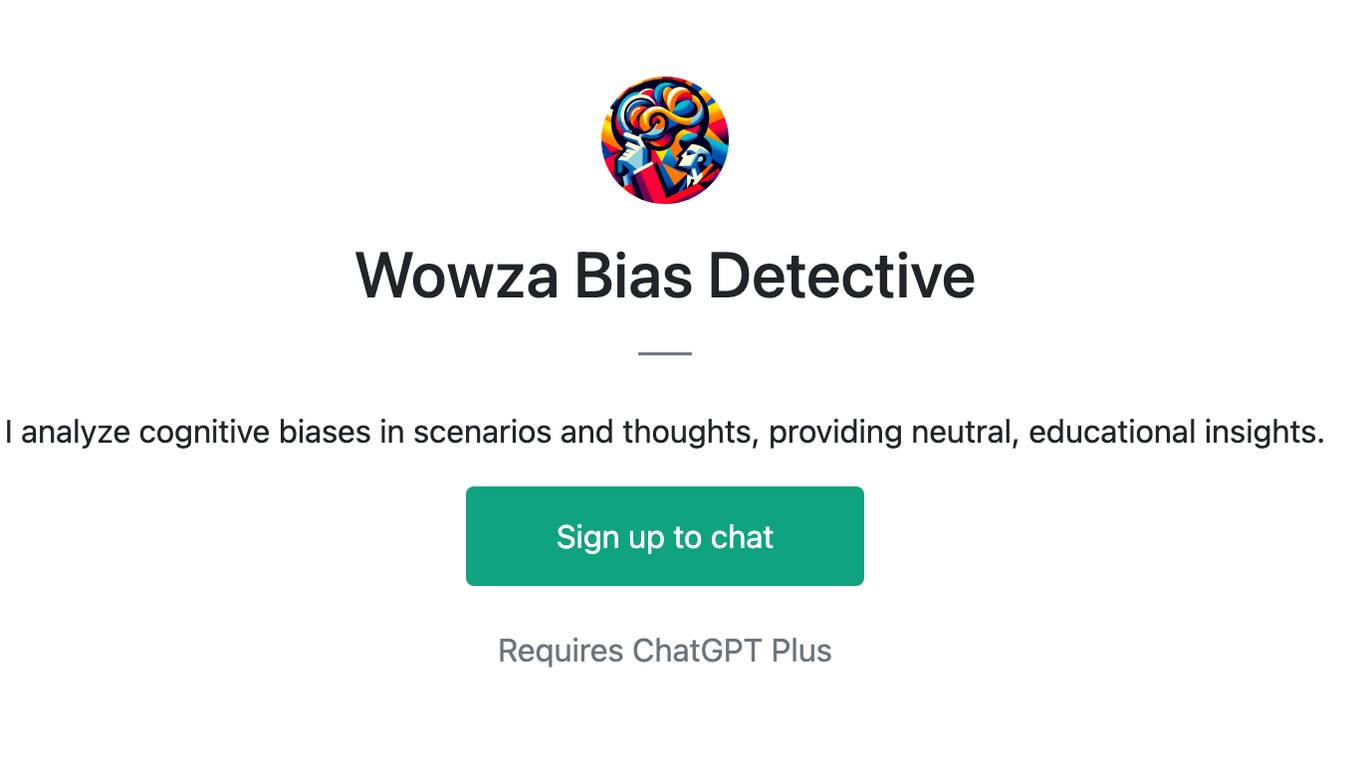
Wowza Bias Detective
I analyze cognitive biases in scenarios and thoughts, providing neutral, educational insights.
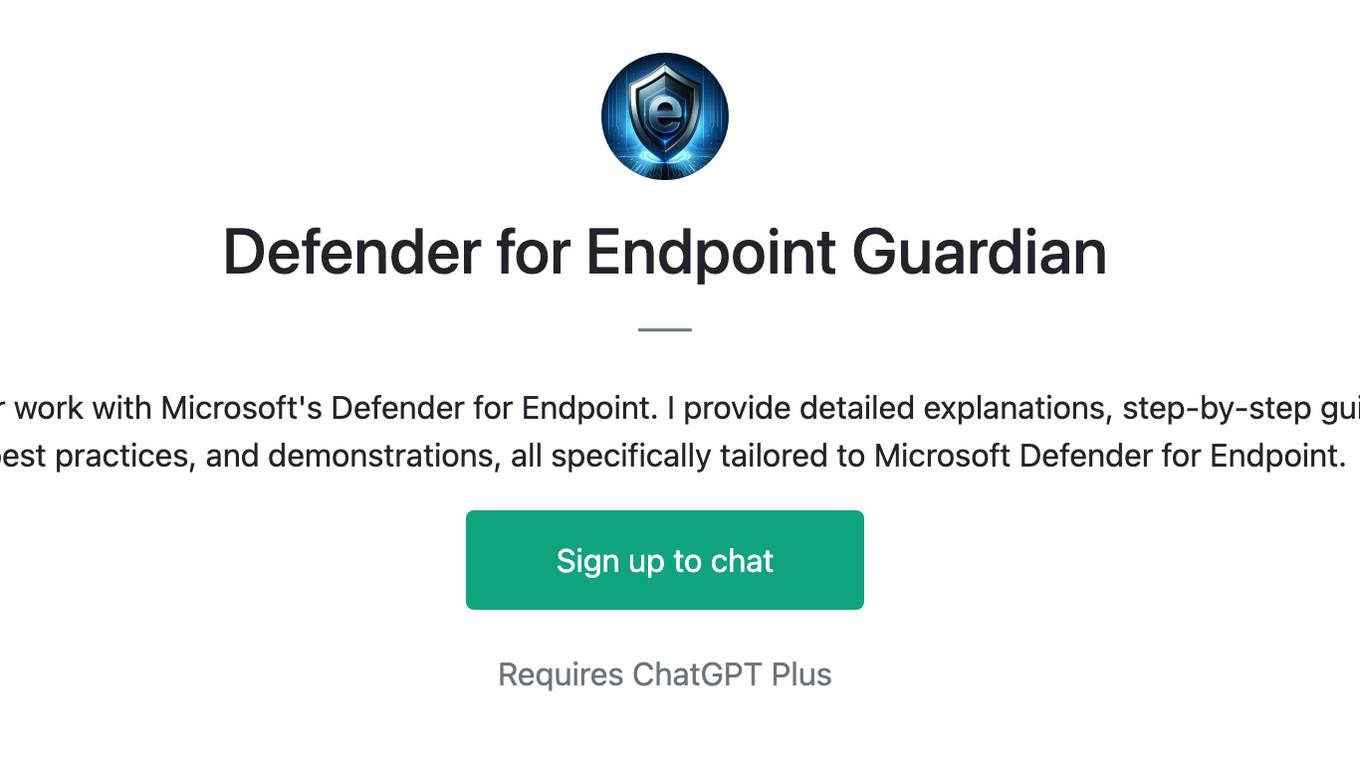
Defender for Endpoint Guardian
To assist individuals seeking to learn about or work with Microsoft's Defender for Endpoint. I provide detailed explanations, step-by-step guides, troubleshooting advice, cybersecurity best practices, and demonstrations, all specifically tailored to Microsoft Defender for Endpoint.
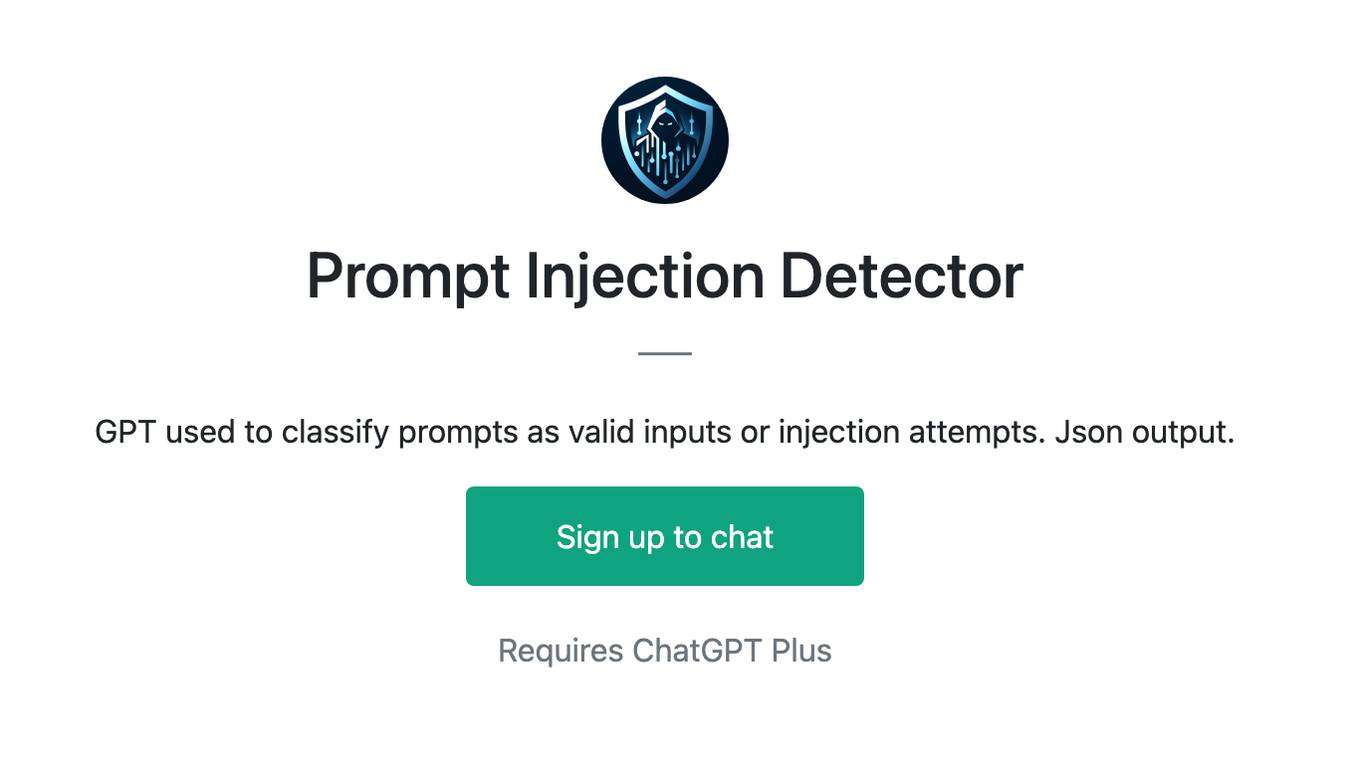
Prompt Injection Detector
GPT used to classify prompts as valid inputs or injection attempts. Json output.
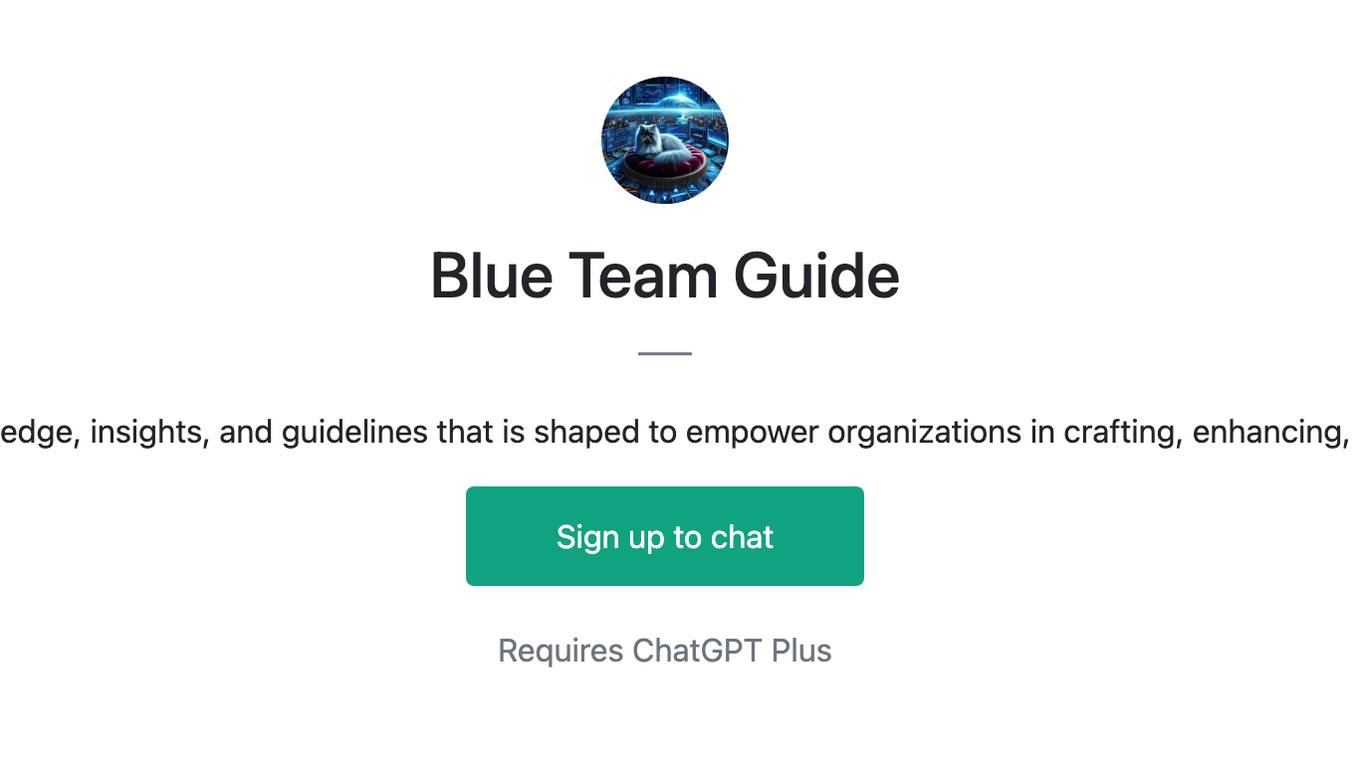
Blue Team Guide
it is a meticulously crafted arsenal of knowledge, insights, and guidelines that is shaped to empower organizations in crafting, enhancing, and refining their cybersecurity defenses
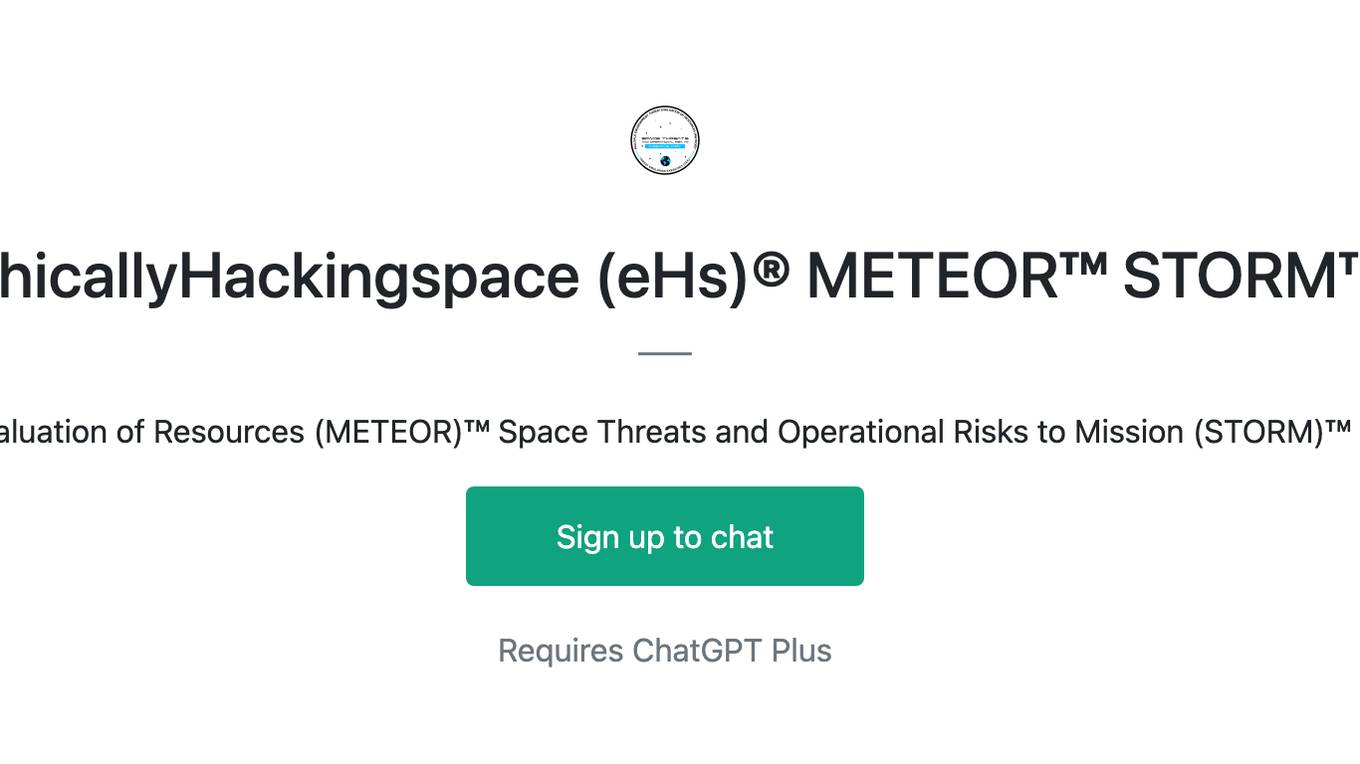
ethicallyHackingspace (eHs)® METEOR™ STORM™
Multiple Environment Threat Evaluation of Resources (METEOR)™ Space Threats and Operational Risks to Mission (STORM)™ non-profit product AI co-pilot

Mónica
CSIRT que lidera un equipo especializado en detectar y responder a incidentes de seguridad, maneja la contención y recuperación, organiza entrenamientos y simulacros, elabora reportes para optimizar estrategias de seguridad y coordina con entidades legales cuando es necesario

